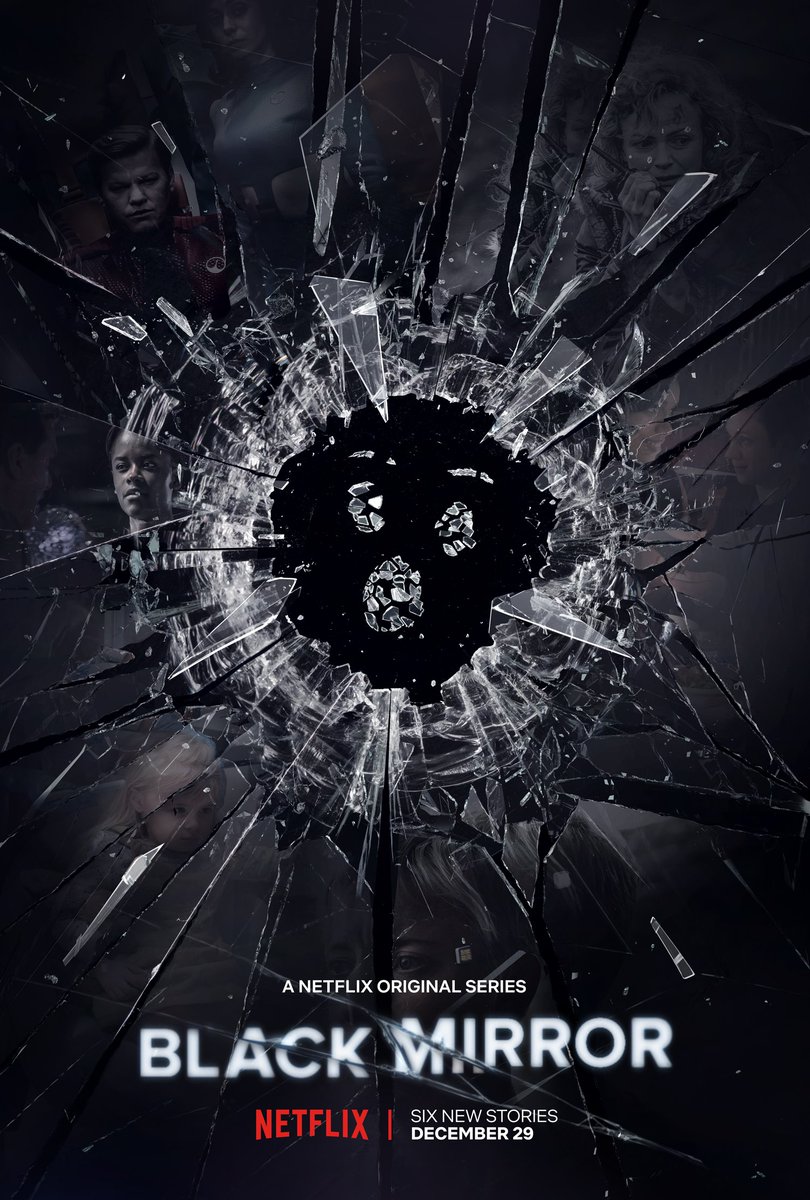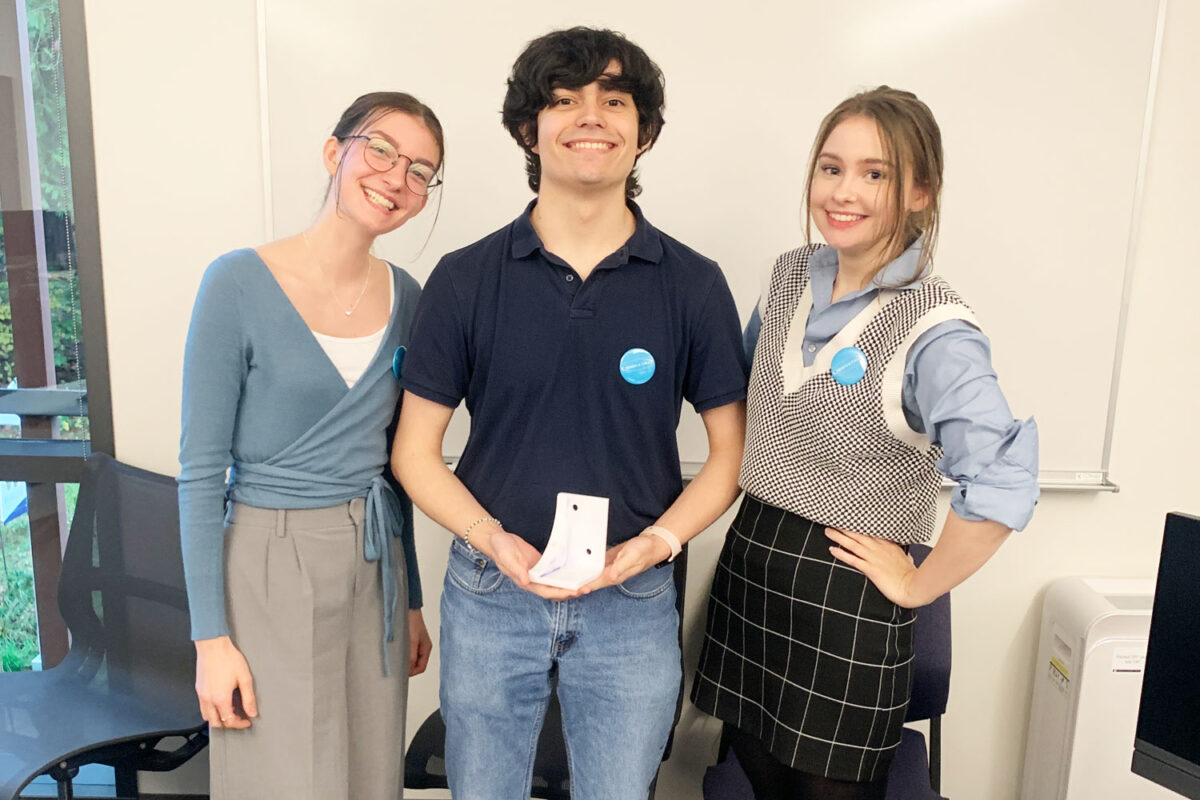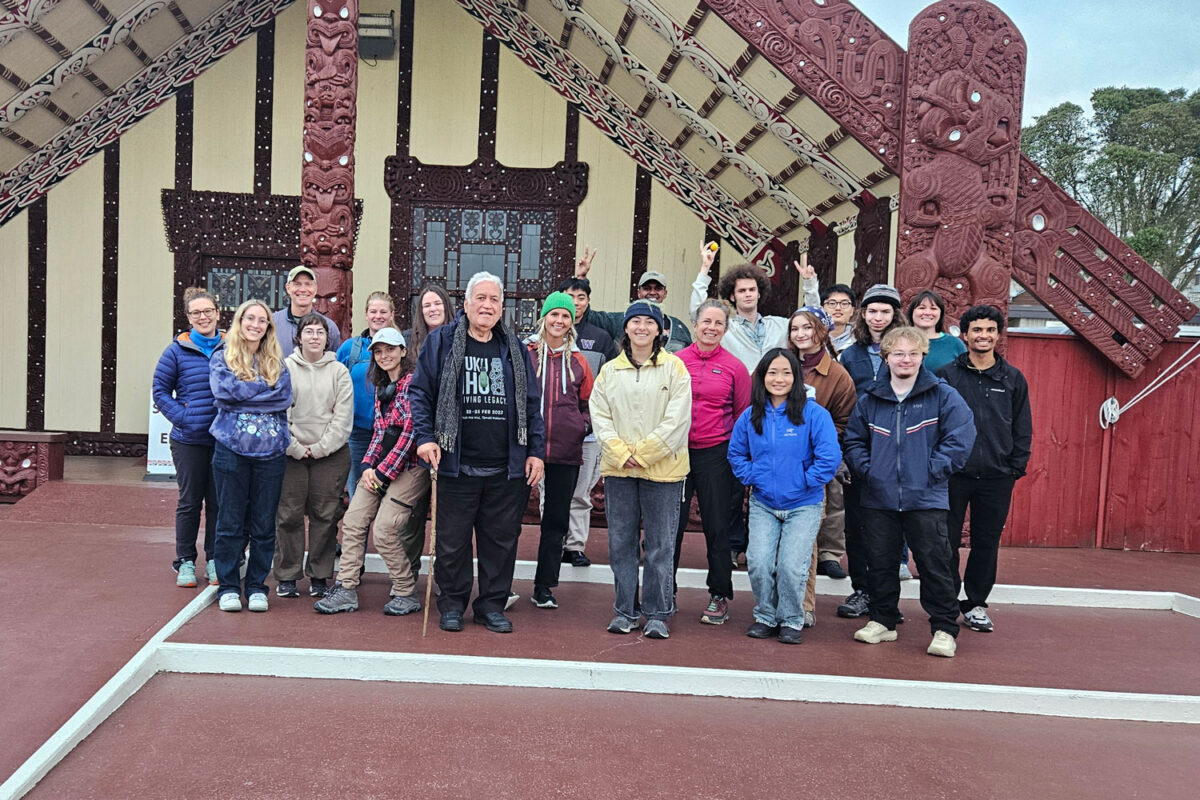By N. L. Sweeney
A robotic boyfriend. A tortured artificial intelligence. A rating system for every interaction.

These are some of the subjects of “Black Mirror,” a sobering science fiction series that reflects the fears and not-so-distant realities of our time.
Originally on British television in 2011, the show was picked up by Netflix in 2015. Now on its fifth season, the show was chosen the Best TV Movie/Miniseries at the International Emmy Awards and has received seven Emmy Awards over the years.
It is more than its external validation, however, that led Wanda Gregory, lecturer in the School of Interdisciplinary Arts & Sciences, to form a class around the show.
Looking back
Gregory first encountered “Black Mirror” a few years ago after several students approached her asking if she had seen it. Having previously worked with Hasbro, Wizards of the Coast and Microsoft, “Black Mirror” spoke to her passion for games, virtual reality and technology.
The more she watched the show, the more she knew she wanted to lead a course on the critically acclaimed phenomenon.
For Gregory, this series represents more than just entertainment. “People have varying opinions about the quality or artistic merit of the show,” she said, “but regardless, the themes and possibilities that ‘Black Mirror’ explores are relevant and timely for our culture today.”
As with any medium, the first place to begin to understand the artwork is by looking at its history and context.
To do this, Gregory’s class examines “The Twilight Zone,” a network TV show which began in 1959 and went through multiple revivals, with the most recent being in 2019. Similar to “Black Mirror,” “The Twilight Zone” was widely and well received with more than 150 original episodes and 10 more in the new series.
“While the original ‘Twilight Zone’ episodes might look campy or silly for someone today, they resonated with the fears and zeitgeist of American culture at that time,” said Gregory. “The show’s popularity and its multiple resurgences indicate that this type of speculative media continues to have relevance.”
Asking the right questions
Each class, students watch an episode together and then dive into interpretation. The class will culminate in a research paper.
“One of the questions I am most interested for students to investigate,” said Gregory, “is how the technology that each show features could have been desirable at one point.
“It’s easy to call the ways these technologies are used bad, but how could people have consented to these developments before the point where the episode begins?” she asks.
Ian Bryan, an Interactive Media Design major in the class, views this sort of exploration as essential. “It almost seems irresponsible of our technology-forward culture to not talk about the topics addressed in the show,” he said. “Just as health education was mandatory in high school, a course on technology and human behavior feels justified.”
Gregory also hopes students reflect on current technologies and the permissions they are handing over.
“When you look at social media, for example,” said Gregory, “there are so many ‘agreements’ that we click through. A show like “‘Black Mirror’ makes us question what exactly we are giving up in order to gain the benefits of a specific technology.”
Seeing the present in the “future”
“What originally intrigued me about ‘Black Mirror’ was its intersections: technology, society, ethics, business,” said Gregory. “Exploring the network that these connections form creates space for fascinating conversations and questions.”
The advancements in technologies around which the series centers many of its episodes are not as unfamiliar as they might seem, she noted.
In an episode such as The Entire History of You, for example, people have implants that allow them to catalog their entire lives, but we already do that via our social media and our phones. Privacy, data collection, gamification, cyber bullying and our reliance on the digital memory stored in our front pockets are all contemporary issues.
Like any effective science fiction, she said, this series examines current day developments and forces us to analyze the implications of those developments.
“‘Black Mirror’ blurs the line between reality and science fiction just as it blurs morality and ethics,” said Gregory. “That alone makes this show worth exploring.”



